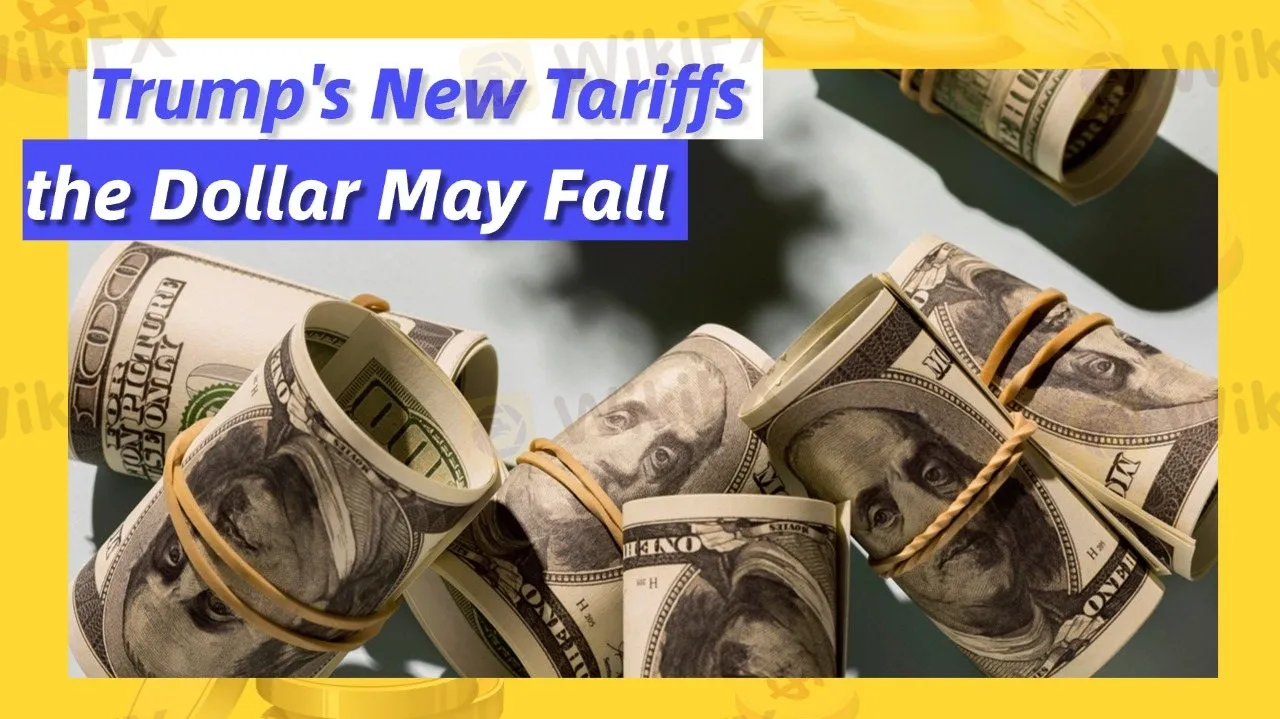Trump's new tariffs, the dollar may fall
Abstract:As Trump nears taking office, the key question is whether these new tariffs will be implemented, and whether the dollar can continue to rise.

During his campaign, Trump proposed a 10-20% tariff on all imported goods, with a 60% tariff specifically on Chinese products.
Recent reports indicate that Trumps team is working on a new tariff plan, aiming to impose import duties on certain goods from around the world. This plan is different from the “universal tariffs” that Trump suggested during his campaign, and the specific goods or industries that will be affected have not yet been disclosed.
The tariff policy Trump proposed during the election primarily aimed to protect U.S. domestic manufacturing, reducing competition from low-priced imports. This policy was closely tied to Trumps campaign promises and helped garner support from voters. Additionally, the revenue generated from tariffs could offset potential tax losses from other tax cuts.

However, Trump has denied reducing the intensity of the new tariffs, leading to a drop in the dollar during volatile trading, with the dollar index falling by 0.7% to 108.23.
It remains unclear whether Trump will change his mind, and the tariff policy is still being adjusted, with no final decisions made yet.
One reason for considering adjustments to the “universal tariff” is that such a policy could provoke a strong reaction from U.S. consumers and businesses. If prices on everyday items like food and consumer electronics rise, it could lead to public dissatisfaction.
Trump's team is clearly aware that widespread tariffs could trigger retaliation from international trade partners, further intensifying global supply chain uncertainty and increasing costs for U.S. businesses and consumers.

Read more

Canada to Enforce Retaliatory Tariffs if U.S. Duties Persist
Canada is striking back! If U.S. tariffs persist, Canada will impose retaliatory duties, escalating tensions in North American trade.

Unbelievable! Is the Yen Really Gaining Strength?
Recently, the yen exchange rate has once again broken through the 150 yen per U.S. dollar mark, sparking heated discussions about its appreciation.

Watch Out! Inflation Control is Key!
Recently, the stability of the Naira exchange rate has become a key focus in the market. The Central Bank of Nigeria (CBN) has implemented a series of monetary policy interventions, reducing the exchange rate gap between the official market and the parallel market to below 1%.

Is TUOTENDA a cryptocurrency scam primarily targeting men over the age of 50?
In recent discussions circulating online, serious concerns have been raised about TUOTENDA—a brokerage that some now claim is a cryptocurrency scam specifically preying on middle-aged investors. Reports indicate that many men over the age of 50 have reportedly lost money after engaging with this broker, sparking alarm and prompting calls for increased caution.
WikiFX Broker
Latest News
How Do You Make Money in the Forex Market in March 2025
Europe’s High-Stakes Gamble: Can It Bridge the U.S.-Ukraine Divide?
Crypto Trading: New Trend among Indian Youth
Botbro Creator, Lavish Chaudhary Unveils New Project
Is TUOTENDA a cryptocurrency scam primarily targeting men over the age of 50?
Canada to Enforce Retaliatory Tariffs if U.S. Duties Persist
Unbelievable! Is the Yen Really Gaining Strength?
First UK Criminal Conviction for Unregistered Crypto ATMs Involves Over £2.5 Million
Consob Exercises MICAR Authority for the First Time, Shutting Down Unregistered Crypto Website
TD Bank Appoints Guidepost Solutions for AML Compliance Oversight
Rate Calc

